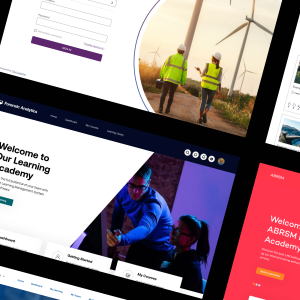Implementing learning and development can have a transformative effect on your business – especially if you’re in the retail sector.
If you need convincing, the results of a study carried out by the American Society for Training and Development observed that organisations which invest heavily in learning and development enjoy profit margins up to 24% higher than those who don’t.
But why’s training so important? And if you’re thinking about implementing it in your own company, how can you do it well?
Training will benefit almost every aspect of your business. From the levels of service, to how consistently your team meets KPIs.
That’s all well and good, but training is such a far-reaching term, and because of the fast-paced nature of retail, there are plenty of challenges you’ll face when creating a successful L&D function.
Some of the common challenges you could face:
- Keeping it relevant
- Getting valuable feedback
- Sharing high-quality content
- How you deliver it
- Keeping your team engaged
- Personalising it for different roles
At Titus, we work with retailers to create Learning Management Systems. We understand the challenges that you’re likely to face because we’ve experienced them ourselves before, so if you’d like expert help, get in touch.
In this article, I’m sharing a series of tips to help you do it well and navigate the challenges you’re likely to face.
Different types of training
Training affects all stages of a person’s career. It starts on the day they first walk through the door and continues for the remainder of their time with your organisation.
It’s hard to define every situation where training exists in retail because there are so many different ways it can be delivered.
Here are some of the most common types of training we see in the retail sector:
Induction training
Welcoming a new person into your business is a challenge in itself. Training at this stage is crucial because it allows you to set the tone, inform on any company specific information and even describe your working environment. You can cover all kinds of things in an induction process. We wrote a post about it, which you can find here.
Sales training
All retailers want more sales. So if you’ve got excellent sales training in place, you can help to increase the average sales per employee. It’ll mean more revenue and a more energised team.
Brand awareness
Your brand is at the heart of everything you do. It spans into all areas of the business, from dress-code right down to the language your employees use to greet customers. Training is the most effective way of standardising what you want from your team.
Culture training
One of the more complicated things to get right. Where culture is concerned, you have to be extra careful. You may want a friendly, youthful culture, or you may need to be more traditionally professional/formal – either way, training and the way you deliver it will impact your result.
Management training
Managers play a significant role in any organisation. But there are so many different ways to manage people, and it can be intimidating when someones entirely new to that kind of role. Good management training is key to creating a positive and enthusiastic workforce.
Compliance training
With the introduction of GDPR, your team needs to be up to date with the latest rules. Turning a blind eye will have a disastrous impact on your business and could lead to substantial fines. That’s why compliance training should be in your plan.
These are just a few of the essential types of training for retail, and with the right plan in place, putting together your programme doesn’t have to be a painful task.
Top tips for planning training for retail
Get it right from the start.
When a new team member joins your business, it’s easy to forget that they’re not familiar with the way you work. Even if they’re from a similar kind of company, every business has different standards and quirks.
Implementing a well thought out induction programme can make a significant impact and alleviate some of the issues you’d typically come across.
By investing in a bespoke induction training course, it’ll end up saving you money in the long run. It’s your opportunity to share the standards you expect, what’s essential to your company and impart details on dress-code.
Take advantage of available content.
Good content is the cornerstone of any training programme, especially if it’s delivered online.
Creating bespoke content at every stage would give you full control over your employees learning, but that’s expensive and takes A LOT of work.
You can save money by using resources like Go1. They give you access to an extensive database of premade courses covering all kinds of subjects, many of which are highly relevant to your employees.
I’m not suggesting you plan your entire training programme this way, but it’s a great asset to bolster the work you put in with bespoke content.
Make it part of your culture.
Training shouldn’t be a chore. However, it can quickly become one if you approach it in the wrong way.
Think about your own experiences with training and consider the different kinds of people who work for you. Your company’s culture should promote it.
Take Google. They’re one of the world’s most successful companies, and they focus on learning at every level. You can read more about their approach in our blog post How Google approaches learning and development.
Whether it’s through encouraging your managers to talk about opportunities regularly, or you prescribe a series of mandatory courses.
Use different formats
Blended learning is a popular idea at the moment. It’s the principle of combining different formats when delivering course material.
It means your team engages in learning in several ways. It’s highly personal to your specific needs, but some examples would be to have a face to face training session followed up with the completion of an online quiz. It doesn’t matter which methods you implement; it’s about having a mix so that it remains exciting and engaging for your team.
Invest in an LMS
There’s been a surge in the number of retailers using a Learning Management System at the centre of their learning and development functions.
By having a dynamic learning management system, you’ll give your employees access to the content you want to share. They’ll be able to access it across various devices and will provide more flexibility to when and where they learn.
What’s more, you’ll benefit from insights into how engaged your employees are, and that’ll allow you to make data-driven changes to improve how you use it.
Titus specialises in developing learning management systems and we have lots of experience in the retail sector. We’d be happy to discuss your eLearning needs and how we can help you implement it effectively.
Get in touch with any questions you have.







